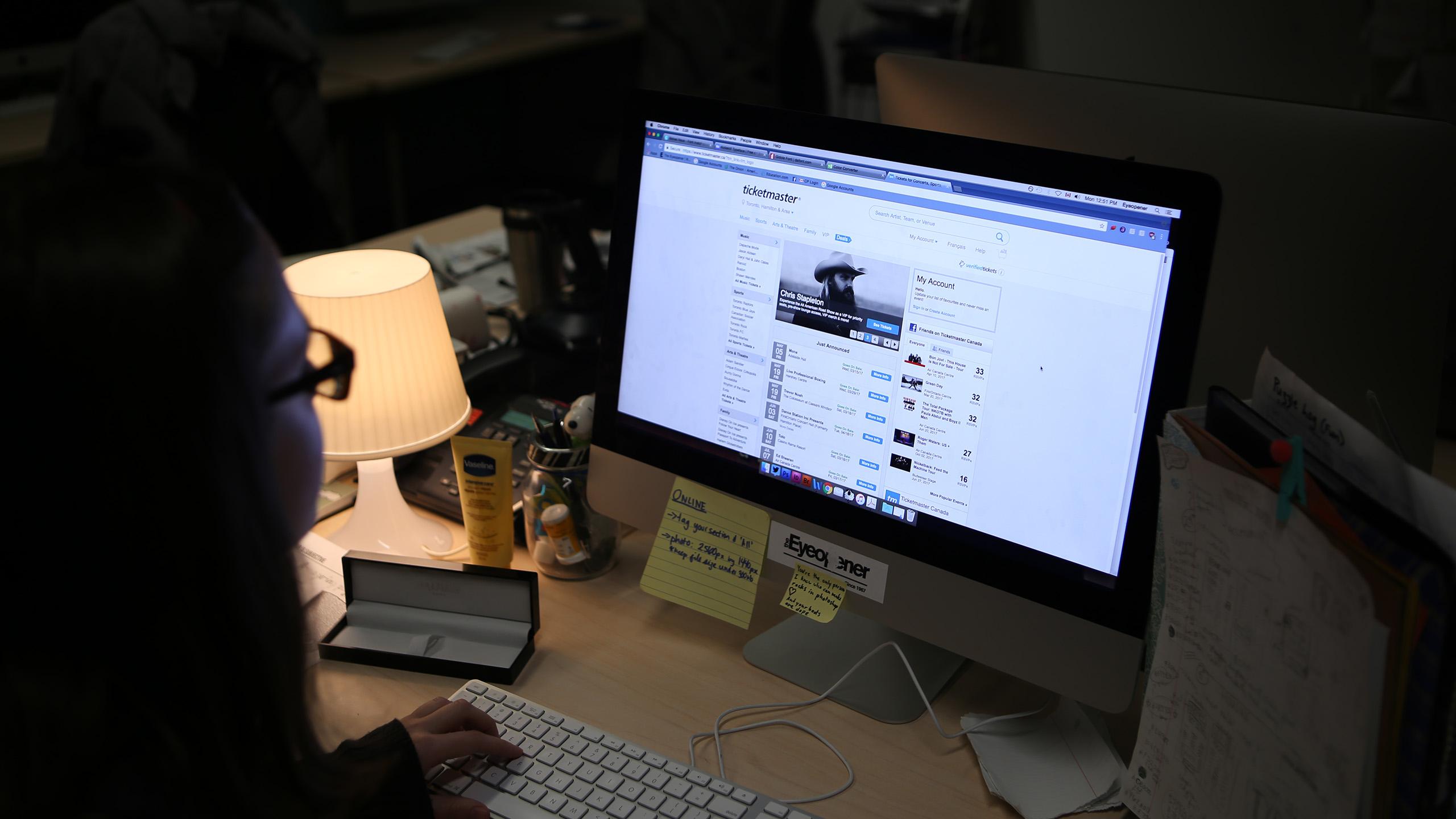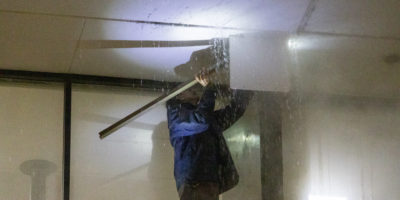By Raneem Al-Ozzi
When concert and event tickets are resold on third party websites, students are left with little choice but to overpay. But the Ontario government plans to change rules surrounding the online ticket market.
The government launched a public consultation, which ends Wednesday, for fans and ticket buyers to share their experiences and help develop new rules so everyone can have a fair shot at buying tickets. The consultation began on Feb. 28, and is in the form of an online survey.
Attorney General Yasir Naqvi said the planned legislation will focus on the enforcement of rules to secure safe accessibility, affordability and transparency.
“I am cognizant of the fact that we cannot turn off the internet and we cannot prevent people from buying and selling tickets online,” Naqvi said. “But we can work within the given framework to protect consumers and give them a better chance at buying tickets.”
Preventing scalping will be a challenge
According to Pascal Courty, an economist at the University of Victoria, the responsibility of restricting the scalping industry falls on both artists and the government.
The government should aim to impose fines, expose scalpers and enforce more stringent rules around online ticket selling. Courty, who has extensively studied the secondary ticketing market, said artists and promoters need to be more transparent with their fans about sales. If people know how many tickets are available and how many are being sold, it’s easier to detect flaws in the system.
“It would be very hard to [prevent scalping] in the primary market,” he said, adding that secondary ticket market flow needs to be limited and monitored first.
The global secondary ticketing industry is reported to be worth more than $10.76 billion.
According to the government of Ontario, some vendors reported that at large stadium events, there is an average of about 50 to 60 instances of invalid tickets being sold.
In Ontario, reselling a ticket above face value without a verification system or an effective money-back guarantee is considered illegal.
Naqvi said the new legislation governing online ticket sales will most likely be debated and passed in the fall.
Ryerson students overpay for tickets
Adina Vlasov, a first-year financial mathematics student, wanted to buy tickets to John Mayer’s concert at the Air Canada Centre this coming April. Shortly after tickets went on sale, the seats she wanted sold out, so she started looking on resale websites.
She bought tickets from a U.S. company, but the currency conversion was not factored into the price and service charges. Vlasov ended up paying nearly four times what she intended to and since resold tickets cannot be refunded, there was nothing she could do.
“The website and process are designed to trick people the way I was tricked,” said Vlasov, who put the tickets up for sale after the distressing incident.
“It was so frustrating to be on the website the time the tickets were supposed to go on sale and then just find nothing,” she said. “It’s very detrimental to the honest consumer who’s just trying to buy tickets.”
Vlasov believes there needs to be some form of legal consequence and better online security surrounding online ticket selling.
The price of tickets in the primary market is low, which helps to further expand the scalping industry, Courty said, scalpers use this to their advantage. Another solution would be to increase market selling prices to slow down the secondary ticketing industry.
Reselling websites can scam customers
Julia Tacinelli, a first-year nutrition and food student, was logged onto three different devices when she tried to buy tickets for a Drake concert last summer. The tickets sold out immediately, as if they were never released. Shortly afterward, the tickets were being resold at a higher price through StubHub, a popular ticket reselling website.
Tacinelli avoids buying resold tickets because she worries about getting scammed. She bought tickets for a concert with a lower demand in Buffalo when she couldn’t get ones she initially wanted at nearby location.
Having to provide personal information and photo identification could help limit scalping, said Tacinelli. “It’s important to regulate these websites and not have it so that people can buy over a hundred tickets for an event,” she added.
The art of ticket reselling
Courty said studies show nearly half of resold tickets are sold between fans and not by automated ticket-buying bots.
This rings true with Katy*, a die-hard sports fan who wished to remain anonymous. She has been reselling tickets for two years as a fast and easy way to make money—but also for the “thrill.”
Katy buys tickets from Ticketmaster and other primary sources then sells them on websites like StubHub, which uses U.S. dollars as their reselling currency.
As well as being a platinum season-tickets holder, a Rogers user and registered Ticketmaster user for over three years, Katy has other connections within the sports industry. This gives her access to exclusive perks and pre-sale tickets unavailable to other fans.
When it’s playoff season, Katy will buy as many tickets as she can get. “I’ll have two tablets, my phone and my laptop out … the more hype the event, the more tickets I’ll buy.”
Had the Toronto Blue Jays made it to the World Series finals last year, Katy said she would have resold at least $20,000 worth of tickets. A play-off ticket can be easily marked up by triple, she said.
Katy said she once sold a ticket for $4,200. “It’s sustainable, but if the hype isn’t there, you’re not gonna make any money.”
It’s about having money and being willing to invest it, said Katy. She recently bought tickets for the Montreal Canadiens games, which she knows won’t pay off for a few months.
Student struggles to find tickets from primary sellers
Matthew Rodrigopulle, who tries to go to one game every season, said when it comes to sports events, it’s almost impossible to get tickets from a primary source like Ticketmaster.
“You can’t get Leafs tickets without paying extra. They’re an old team and a lot of fans are season seat-holders … If I wanted to get a ticket I’d have to buy a resold one,” he said.
“The Raptors and Jays are easier to get by, but they’re increasing their pricing as the season advances and some are trying to get those tickets and resell them.”
Still, Rodrigopulle said buying resold tickets is sketchy. One of his friends bought a resold ticket to see the Blue Jays play but the ticket turned out to be scanned and invalid.
Rodrigopulle said although he thinks any new provincial legislation for online ticket sales will be weak, there should be stricter rules with regards to how people can buy tickets.
“At the end of the day, going to a concert or hockey game is something we do for our quality of life, we want to participate in entertainment and we want to be able to enjoy things,” said Naqvi.“If people feel that rules are rigged against them … then there is a problem.”
*Name changed to protect her identity












Leave a Reply